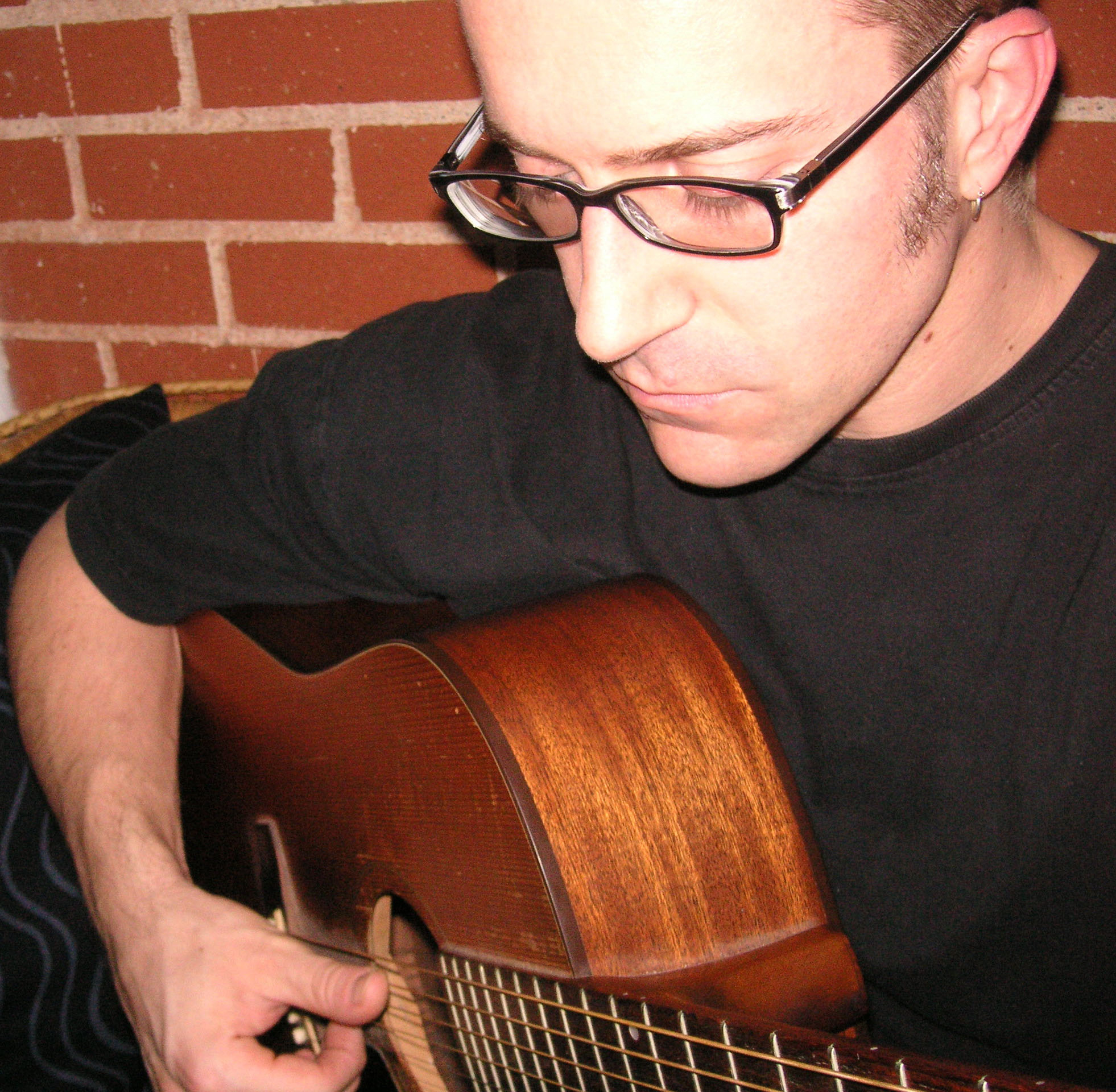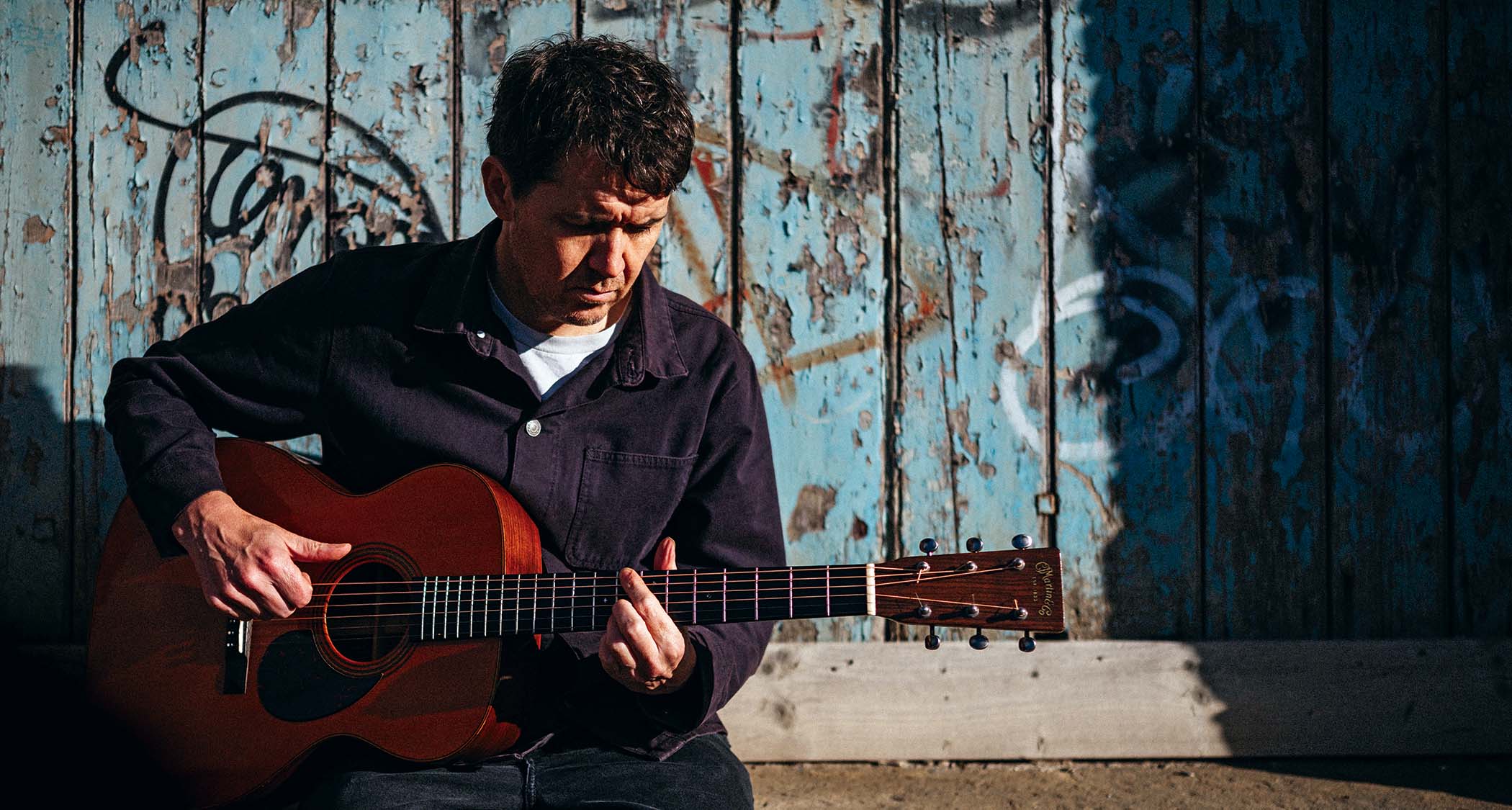Leslie Feist's Fierce Fingerpicking
All the latest guitar news, interviews, lessons, reviews, deals and more, direct to your inbox!
You are now subscribed
Your newsletter sign-up was successful

Back in 1996, a potentially career-ending vocal injury forced Leslie Feist, who at the time was touring with Canadian punk-rockers Placebo, off the road, ordered by her doctors to “stop singing for six months.”
Instead of wallowing in self pity, Leslie got busy, teaching herself guitar and honing her songwriting chops. With wide-ranging influences like the Bee Gees, Joni Mitchell, Nina Simone and Ron Sexmith, combined with a folk, pop, indie-rock, electronic, blues and Latin music fascination, Leslie began formulating a unique songwriting and performance style, much of which stems from fingerpicked acoustic riffs (using thumb and index finger, exclusively) and “live looping” of her vocals.
Today, simply known as Feist, she’s the often imitated but never duplicated indie-pop icon known for hits like “Mushaboom” and “1234,” among many others. Let’s celebrate the recent release of her fifth solo album, Pleasure (her first in six years), with an in-depth Feist-y fingerpicking lesson.
During her stint as rhythm guitarist for Toronto-based indie rockers By Divine Right (1998–2000), Feist independently released her first solo album, Monarch (now out-of-print, although 2,000 vinyl copies were reissued in 2012), which she sold only at BDR shows. In the coming years, Feist would enjoy extended (and on-again-off-again) stints with artists like Peaches and multi-instrumentalist/producer Chilly Gonzales, as well as Broken Social Scene (Feel Good Lost, You Forgot It in People), before moving to Paris, France, where her sophomore effort, Let It Die, began taking shape.
Issued in 2004, Let It Die put Feist on the map as a solo artist (netting her Best Alternative Album and Best New Artist honors at Canada’s 2006 Juno Awards), its successful single “Mushaboom” hinted at in FIGURE 1, similarly performed in one of Feist’s favorite tunings, drop-D. Use your thumb and index fingers to pick the indicated notes.
With Feist’s brand of (some say) “whisper rock” making waves, 2006’s Open Season (remixes and alternate versions of Let It Die cuts) left the public wanting more; they got it with The Reminder, Feist’s 2007 masterwork, overrun with smashes like “My Moon My Man” and “1234,” the latter kicked off with an infectious acoustic riff, not unlike FIGURE 2. To properly cop the staccato quarter notes from “1234,” shorten each note’s duration by releasing fret-hand pressure (coupled with slight pick-hand muting) each time you see a “.” in notation.
Meanwhile, the album’s third single, “I Feel It All,” akin to FIGURE 3, showcased Feist’s groovy strumming side, her acoustic’s strings tuned to an open D chord.
All the latest guitar news, interviews, lessons, reviews, deals and more, direct to your inbox!
The Reminder earned Feist four Grammy nominations; a “making of the album” documentary, Look at What the Light Did Now, was released in 2010.
We’ll close this lesson with two songs from 2011’s Metals; the album’s arguably lengthy gestation due in part to Feist quitting playing music for two years (to recover from being “emotionally deaf”). In a for-fans-only demo version of the single “How Come You Never Go There,” Feist’s acoustic playing is front and center, with bluesy fingerpicking like FIGURE 4 drawing listeners in.
Even more elaborate right-hand patterns propel “The Circle Married the Line,” as in FIGURE 5, one of Metals’ more “progressive” offerings.
A singer-songwriter/multi-instrumentalist/film composer, Musician's Institute instructor, and author of 50+ transcription/instructional books, Dale Turner is also Guitar World's "Hole Notes"/"Acoustic Nation" columnist, and the former West Coast Editor of Guitar One magazine. Some of Dale’s old, weird, rare, and/or exotic instruments are featured in his score for WEEDS, the first animated short completed within the Filmmakers Co-op at Disney Feature Animation. His most recent CD, Mannerisms Magnified, was praised by Guitar Player magazine for its "Smart pop tunes that are crammed with interesting guitar parts and tones ... Like what the Beach Boys might do if they were on an acid trip that was on the verge of getting out of control. Yeah!"

